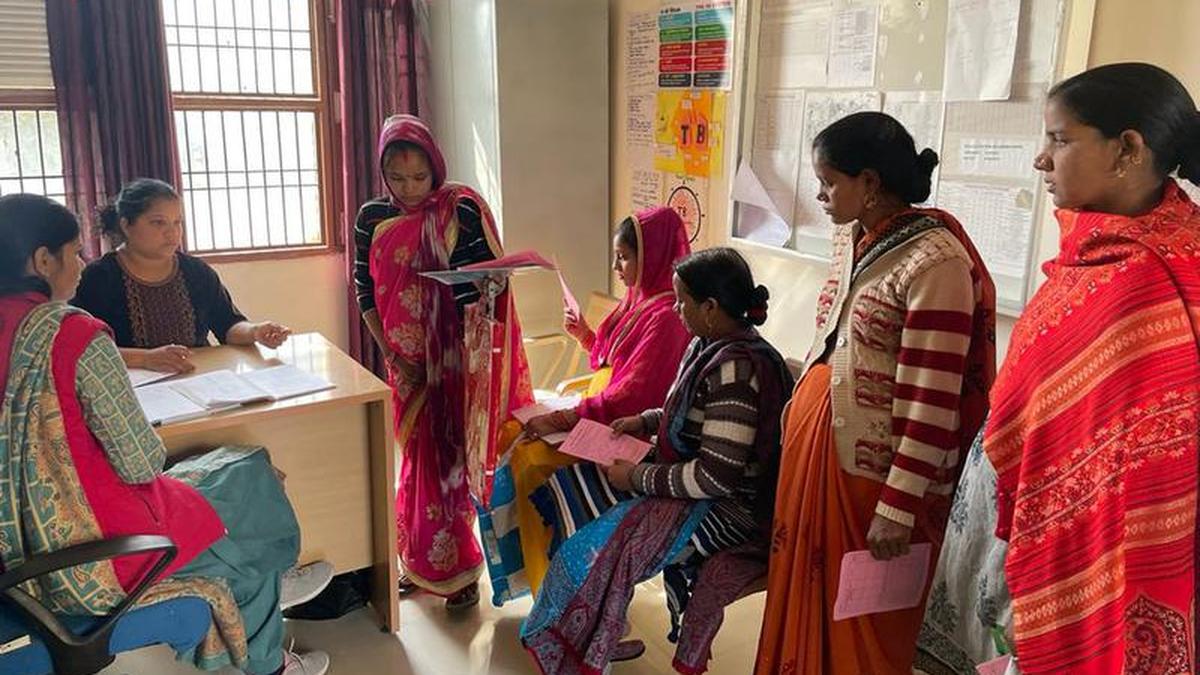A recent order by the Haryana Health Department making registration of all pregnant women mandatory during their first trimester has sparked concerns over invasion of women’s privacy and potential conflict with the existing law on termination of pregnancy. It may also have unintended consequences, such as driving women to seek unsafe abortions outside the formal healthcare system.
The two-week-old order by the Director General Health Services (DGHS) aims to achieve 100% registration of pregnant women, a significant improvement from the current 50-80% registration rates across various districts. The order mandates that ultrasound centres must register pregnant women before conducting examinations, with non-compliance resulting in a notice.
To register on the Reproductive and Child Health (RCH) portal, women must provide personal details, including their name, Aadhaar card number, husband’s name, address, and caste. The registration is intended to enable better monitoring and reporting of RMNCH (reproductive, maternal, newborn, and child health) programmes, making women eligible for benefits under various schemes.
The Indian Medical Association (IMA), Haryana lauded the initiative to ensure optimal antenatal services as a “great initiative” towards reducing pregnancy loss during the first 12 weeks and combating female foeticide, but also wrote a two-page letter to the DGHS stating that the order contradicts the existing Medical Termination of Pregnancy (MTP) Act. It stated that the Act establishes a woman’s reproductive rights as solely her own, provided she is not a minor, and therefore does not require permission from her husband or a legal guardian to undergo an abortion.
Confidentiality issue
Several experts also criticised the order, suggesting that it was “issued in haste” and “without considering its implications and implementation”. Ajay Mahajan, former president of IMA, Haryana, expressed concern over the order going against the spirit of the MTP Act, which prohibits disclosing the names and other particulars of women who have undergone termination of pregnancy.
With local auxiliary nurse midwives (ANMs) the sole authority for registering pregnant women on the RCH portal, it could compromise patient confidentiality, he said. “Letting a local ANM know about an unwanted pregnancy could lead to the identity of the woman being leaked in the neighbourhood. This might deter pregnant women who are unmarried and those seeking an abortion from getting themselves registered.”
Dr. Mahajan said such women might be driven to seek unsafe and illegal abortions, leading them to consult unqualified practitioners, posing serious risks to their health and life. “Since the order is primarily aimed at curbing female foeticide, it could be amended to exempt pregnant women from registration for the first 14 weeks as sex determination isn’t possible during this period. The government could also allow self-registration or registration through doctors at private and government hospitals,” he said.
‘Allow exemptions’
Dr. Ritu Jain, an infertility specialist practising in Gurugram, shared similar concerns, stating that mandatory registration would enable easy tracking of women and their maternity records nationwide. “There could be a confidentiality issue for women who prefer to keep their pregnancies private. Even if the details are not shared with anyone, these women might seek care from quacks fearing their identities will be made public. We are awaiting further details on the order, but the government should consider exempting certain categories of women to address privacy concerns,” she said.
Gynaecologist Jyoti Yadav advocated for pregnant women’s right to privacy as guaranteed under the MTP Act. She said the law permits termination of pregnancy up to 20 weeks, and therefore, the government should exempt registration for this period.
She emphasised the need for the government to regulate the easy availability of MTP kits at chemist shops to curb abortions based on sex determination. She noted that affluent families are willing to travel abroad for sex determination tests and subsequently use readily available drugs to terminate pregnancies. She stressed that this practice must be stopped to improve the State’s sex ratio.
Supreme Court criminal lawyer Amit Mishra also stressed the importance of protecting the privacy of pregnant women, citing Section 5A of the MTP Act, amended in 2021. This section ensures confidentiality by prohibiting registered medical practitioners from disclosing the names and particulars of women who undergo termination of pregnancy, except to authorised persons. Mr. Mishra advocated for granting all pregnant women the right to apply for the RHC ID, which would safeguard their time and privacy.
Mr. Mishra said in Delhi, doctors can immediately conduct ultrasound scans by filling out Form F, ensuring confidentiality between government officials and prenatal diagnostic centres, with no access for third parties. He acknowledged the order’s good intentions, but expressed concerns about issues arising out of its implementation.
‘Promoting health’
Speaking to The Hindu over phone, DGHS Manish Bansal clarified that the sole objective of the order is to ensure the registration of all pregnant women during the first trimester for monitoring their health and stressed that there is no conflict with the MTP Act. Termination of pregnancies is a separate issue, he said.
Seeking the support of the medical fraternity in the implementation of the order, the official said it aims to promote the health of pregnant women and children, prevent illegal abortions by monitoring pregnancies, and address the skewed sex ratio. He dismissed concerns about invasion of privacy, terming them “unfounded”, and assured that all information would be securely stored within the government’s system.
Haryana’s sex ratio at birth has witnessed a decline, dropping to 910 in 2024, its lowest point in eight years. The State had achieved a significant milestone in 2016 when the sex ratio surpassed the 900-mark for the first time in two decades, reaching 914. It peaked at 923 in 2019 before the recent decline.
Published – March 28, 2025 01:15 am IST

